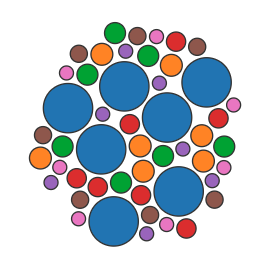
James Strutt has spent over a decade in state government. From the outside, that might conjure images of bureaucracy and inertia but inside, James has quietly led a transformation with profound implications for how governments think about land, data, and technology.
When he started, managing billions of dollars' worth of public land was a manual, fragmented effort. Agencies operated in silos, processes were PDF-based, and coordination relied on email. James's background in investment banking and mining gave him a keen sense for assets and inefficiencies. And in those early days, government tech simply couldn’t keep up with his vision.
Over time, that changed. As open data took hold and computing infrastructure matured, James saw a shift. His thinking evolved into a project, Land IQ, a platform built in partnership with Giraffe that allows government teams to analyse and optimise land use across economic, environmental, and social dimensions.
But the tech alone wasn’t the hard part. The real challenge? People.
“The biggest time burn wasn’t building the tool. It was convincing planners and property professionals that fast, digital processes could be more accurate than legacy ones,” James said.
Land IQ succeeded not just because it worked, but because it empowered experts to think and work differently.
And that ethos has only deepened. The Giraffe tech stack now allows what is perjoratively called "vibe code": but is really simpler tooling, accessible frameworks, AI copilots, and enough power for domain experts to start building their own apps and connecting databases.
Today, James is building apps himself. Not as a full-time developer, but as a domain expert with just enough technical literacy to leverage tools like JavaScript, Giraffe's SDK, and AI-driven code generation.
“You don’t need to be a programmer,” he says. “But you do need to understand the foundations—enough to know when something is wrong or incomplete.”
This shift—from reliance on software teams to collaboration with them—marks a turning point. Instead of waiting for general-purpose enterprise tools, teams can now build precise, context-specific applications. The “last mile” of software—often the most valuable and time-sensitive—is suddenly within reach.
James sees this as the next frontier. Land IQ handles the industrial-scale coordination but lightweight, focused apps fill in the bespoke gaps. Giraffe’s architecture, grounded in React, Python, and open standards, makes it all feel feasible—even inviting.
What makes James’s story compelling isn’t just the technology. It’s his pragmatism. He didn’t wait for silver bullets. He iterated, shipped, and shared. He advises others to do the same.
“The tools are here. The data is here. The cost has never been lower. And AI makes learning faster than it’s ever been. Now is the time to get your hands dirty.”
Watch the full interview here.
---------------
Want to learn how platforms like Giraffe are reshaping how we design and manage cities? Let’s talk.




